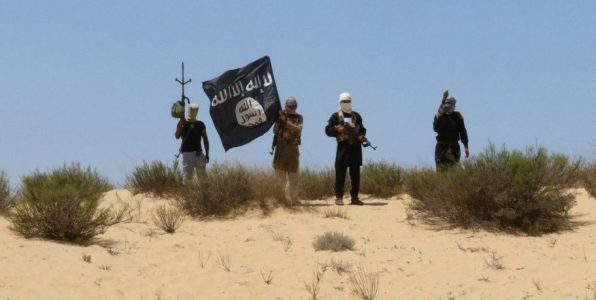
Islamic State’s Sinai affiliate remains a destabilizing force in Egypt
Just last week, the Islamic State’s affiliate in Egypt’s Sinai Peninsula launched a deadly attack, killing eight police officers at a checkpoint. The violence unfolded in Arish, a city located in the northern Sinai Peninsula. Shortly after the attack, Amaq, the Islamic State’s news agency, released a statement claiming credit for the attack. Months after the collapse of the territorial caliphate in Iraq and Syria, the Sinai has remained one of the Islamic State’s most active and most lethal franchise groups.
Journalists have been banned from entering parts of the northern Sinai, making it difficult to discern exact details surrounding militant activity. The Egyptian military responded by raiding a house and killing 14 insurgents who were holed up inside. Guns, explosives, and suicide belts were allegedly located inside the residence.
Since forming in 2014, terrorists have killed hundreds of Egyptian soldiers and destabilized the region, damaging Egypt’s once-vibrant tourism industry. The most high-profile attack attributed to IS in the Sinai was the 2015 downing of Metrojet Flight 9268, blown out of the sky with 224 people on board, all of whom died in the attack as the airliner took off from the popular tourist destination of Sharm el-Sheikh for its destination in St. Petersburg, Russia. In December 2018, IS militants were behind the bombing of a tour bus in Giza that killed three Vietnamese tourists and their Egyptian guide en route to touring Egypt’s famous pyramids.
Beyond targeting the Egyptian security forces and tourist attractions, the focus of the militants’ campaign has been sectarian attacks designed to increase tensions between Sunni Muslims and non-Sunni groups, including Christians. In April 2017, militants attacked two Coptic Christian churches, launching suicide bombings against St. George’s church in the city of Tanta near the Nile delta, and another against St. Mark’s Coptic Orthodox Cathedral, located in Alexandria.
One week later, there was a shooting at a monastery, making it clear that Christians were a top target of jihadist militants. Toward the end of December 2017, 11 worshipers were killed in an attack on a Coptic Church near Cairo. And it is not just Christians who are under assault. In November 2017, in what has been recorded as Egypt’s deadliest terror incident to date, over 300 Sufi Muslims were killed in an attack on their mosque in the Sinai.
Despite an aggressive counterinsurgency campaign waged by the Egyptian military, militants linked to IS are still capable of coordinating sophisticated attacks. Finding safe haven and sanctuary throughout the lawless and ungoverned Sinai peninsula, IS-linked insurgents maintain the ability to engage in classic guerrilla warfare—directing ambushes, staging hit-and-run attacks, and emplacing improvised explosive devices along roads frequently used by Egyptian military vehicles.
The Sisi government has responded with a scorched earth effort to crush the insurgency. And while the military’s efforts have been successful in killing and capturing insurgents, it has also proved counterproductive, with gratuitous violence directed against entire populations. The response has been more people, not fewer, willing to join and support the insurgency.
Source: The Cipher Brief





